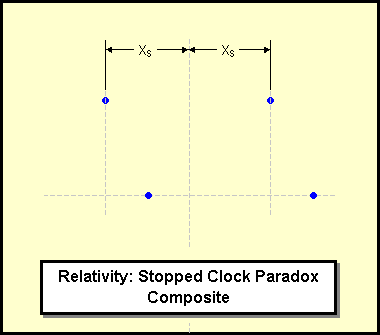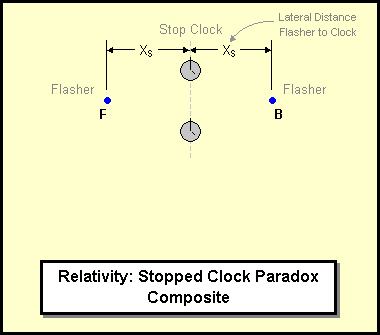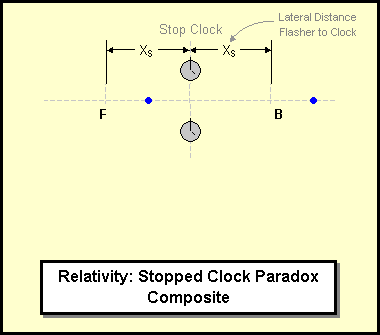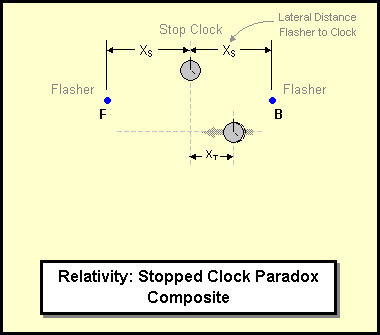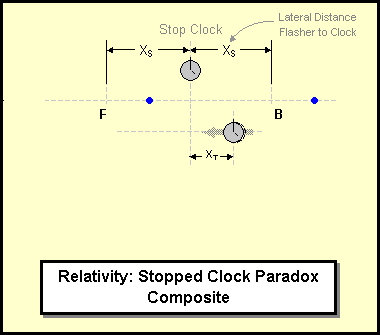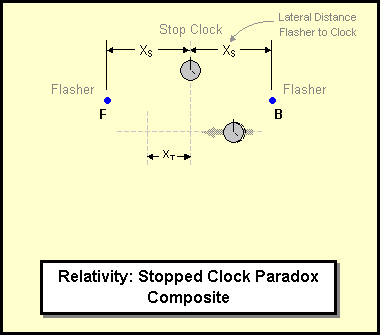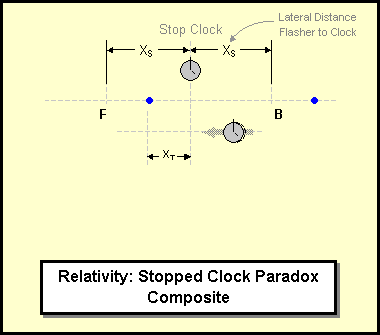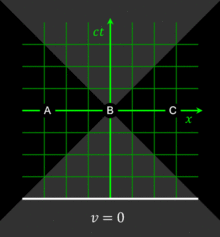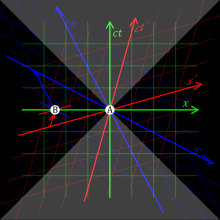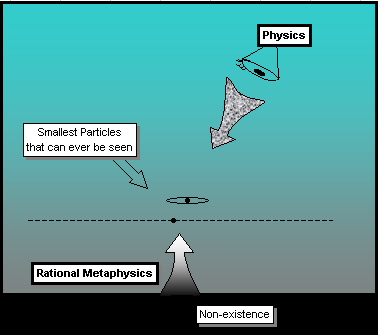Go to page : Previous 1, 2, 3, 4, 5, 6 Next
Author Message
James S Saint
rational metaphysicist
rational metaphysicist
Posts : 244
Join date : 2011-12-26
PostSubject: Re: Rational Metaphysics Thu Oct 03, 2013 5:29 am Reply with quote Edit/Delete this post Delete this post View IP address of poster
Fixed Cross wrote:
I got to judge your rationale first by its fruits before I was asked to examine its roots. That was a strong motivation. I think that is how you should always teach.
From your prior post, I was about to say that exact same thing (“entanglement”). If you are interested in getting someone to learn what you have to say, first make sure they have an interest in it, else it takes too much discipline on their part with no apparent justification. People don’t like learning things just because they are “supposed to”. They need a sense of hope in the gaining of the information. And the young mind sees hope in sporadic directions, so usually can’t stick with anything if not forced.
I am still stuck in the university mode wherein the student has little choice but to listen long enough to gain a little insight as to why he is learning something. On the internet, such is not the case. If interest isn’t captured within the first few lines or posts, with just a careless flick of the finger, the “student” can go find better entertainment. And of course any presumptuous attitude has very little means of being corrected thus prior opinion rules their mind.
It should be more than obvious to anyone with at least a half reasoning mind that I seldom aspire to inspire interest in RM. But I don’t hide it either. In effect, I am letting people sort themselves, much like the young outside the Buddhist temple door. RM is for a specific mature and serious audience. I need not worry about hiding it simply because others hide themselves from it and I’m neither preacher nor Pied Piper.
To actually inspire interest, one must lead a person from wherever they already are. That means that you have to learn where they already are, everything has prerequisites. I have been surprised at how much RM can actually be taught without having to require mathematics. Using a word that is misunderstood in an argument or debating the validity of a theory that isn’t understood is denying the prerequisite (the premise to the rationale).
Top down socialist orders such as Christianity, Islam, Judaism, and Secularism aspire to maintain the social order rather than, and at the expense of, the participants. In my book, that puts them in the “insane” category although not wholeheartedly invalid. That is why the world has gotten suckered into the money game. Money can be easily used to lead people into maintaining the social order at their own expense as everything in their lives is given a dollar value and then taken from them. If they want to live, they literally pay, “the cost/price of living”. The emphasis on self sustaining (momentous) harmony throughout improves such aim.
But as I was saying, for such things to be addressed and influenced requires a sustainable interest in improving such aim and that requires a maturity in interest or some kind of force (the “gun on the island”) or simply being a designer/architect mindset. If one is not inspired to be certainly better than what has always been, then one is going to be no better than what has always been, merely perhaps a little different. If you read 4000 year old books, you find that people had the exact same issues back then as today varying only in particulars.
Why should Pezer or Capable have any interest in RM? From their perspective, there could be no reason thus attitude rules both mind and heart. To have an interest in RM somewhat requires a serious desire to “go for the gold” in ensuring success and accept nothing less. If they had understood the theory of relativity, I could have shown them how the current giant in Science is easily felled. But that would be merely one demonstration of the power involved over extraneous influence from society. But still, first they have to not merely understand Relativity theory, but also have some notion of the need to have any power over that extraneous influence. Most believe that their thoughts are their own and thus don’t see anyone spoon feeding them, “programing them”.
People are being given their values through a precise process of catharsis and trauma (the peaks of hope and threat) preempted by medically induced sensitivity causing presumption, anxiety, boredom, sporadic behavior, fear, blindness, and extremism. That issue is why I am interested in VO’s precise picture concerning how to treat values; of what are they made, from where do they come, how are they to be understood, and by what means are they to be sorted or changed. The fact that people evaluate their actions based on their values is an obvious given. Without answering those questions, people’s values will remain programmed by those who are far more clever.
RM:PHT can explain all of that to extreme detail. But only to the right person who happens to already have a set of values that involve the desire to do better than Man ever has before as well as being a little perturbed by the excessive influences keeping him down. If he thinks that it is only his own thoughts controlling his life, he has already lost. He must be aware that there really is a very clever adversary and most people subconsciously are. Whether that adversary is a “who” or a “what” is a bit irrelevant. The issue is that it is extremely clever and insidiously influential. Those are prerequisites to finding immediate interest in RM:PHT.
And if you engaged in the desire to fight a familiar foe (as almost everyone has been programmed into), then your values are not really your own. RM:AO is a route for not merely fixing the world’s insanity, but your own; Exodus The Matrix.
Capable wrote:
-
Do you think that, in my example below*, we actually do NOT reach the center point at the same time?
-
Do you or do you not think that the clocks, either on the train or at the station or both, shut off?
*You and I stand on the deck of an aircraft carrier, at opposite ends. We run at exactly the same speed [relative to WHAT?] toward each other, to a point in the exact center of us. The aircraft carrier is moving at an arbitrarily fast speed (you pick the speed, the actual speed itself seems irrelevant) and as it happens I am running in the direction that the aircraft carrier is moving, you are running in the opposite direction of its movement. Will we reach the exact center point between us at the exact same time, or will you reach it first because I have more distance to cover than you?
- Do you think that, in my example below*, we actually do NOT reach the center point at the same time?
A) Agree
B) Disagree
C) Other.
In your example the answer is “Other”. Without knowing the speed in relative terms (speed relative to what?) I cannot answer the question.
Of course in a real situation, we would both “push off” of the same ship deck and thus, assuming no other influence, we would be running at the same speed relative to the ship deck. That would lead us to meet at the exact center of the ship deck.
In the stopped clock scenario, the light doesn’t “push off” of anything, but rather merely leaves at its own speed. So there is a pretty important difference in the two scenarios.
The issue is that according to Relativity, both the observer on the train and the observer at the station, must experience light traveling at c relative to themselves. They must both measure the light as traveling at the exact same speed as the other, “c”. And because of that, in the anime, each perspective shows the green photons traveling that the same speed relative to “standing still” in the perspective being seen, c to the station in the station perspective and c to the train in the train perspective. That is fundamental Relativity principle.
- Do you or do you not think that the clocks, either on the train or at the station or both, shut off?
A) Clocks stop
B) Clocks don’t stop
C) Other
The most precise answer would have to be “other”. But that is only due to another issue that is not a part of relativity. But in almost all cases, the result would end up as neither clock will stop (assuming extremely accurate clocks). By merely the theory of relativity, the end result is a paradox requiring that both clocks, both stop and also not stop. My effort was to demonstrate that relativity violates definition and logic, “what actually is cannot also be actually what is”.
And if one denies logic, then one has denied every argument that would lead to the necessity to deny logic.
Back to top Go down
View user profile Send private message Send e-mail
Capable
Tower
Tower
avatar
Posts : 5191
Join date : 2011-11-03
Location : calmly outside of time
PostSubject: Re: Rational Metaphysics Thu Oct 03, 2013 6:38 am Reply with quote Edit/Delete this post Delete this post View IP address of poster
James S Saint wrote:
Capable wrote:
-
Do you think that, in my example below*, we actually do NOT reach the center point at the same time?
-
Do you or do you not think that the clocks, either on the train or at the station or both, shut off?
*You and I stand on the deck of an aircraft carrier, at opposite ends. We run at exactly the same speed [relative to WHAT?] toward each other, to a point in the exact center of us. The aircraft carrier is moving at an arbitrarily fast speed (you pick the speed, the actual speed itself seems irrelevant) and as it happens I am running in the direction that the aircraft carrier is moving, you are running in the opposite direction of its movement. Will we reach the exact center point between us at the exact same time, or will you reach it first because I have more distance to cover than you?
- Do you think that, in my example below*, we actually do NOT reach the center point at the same time?
A) Agree
B) Disagree
C) Other.
In your example the answer is “Other”. Without knowing the speed in relative terms (speed relative to what?) I cannot answer the question.
Of course in a real situation, we would both “push off” of the same ship deck and thus, assuming no other influence, we would be running at the same speed relative to the ship deck. That would lead us to meet at the exact center of the ship deck.
Yes. Good. And now, let’s say from the frame of reference of a fishing boat which the aircraft carrier is passing, you think that we will NOT reach the exact center of the boat at the same time? Before you go into long explanations, just answer this with a Yes or No.
Quote :
In the stopped clock scenario, the light doesn’t “push off” of anything, but rather merely leaves at its own speed. So there is a pretty important difference in the two scenarios.
The issue is that according to Relativity, both the observer on the train and the observer at the station, must experience light traveling at c relative to themselves. They must both measure the light as traveling at the exact same speed as the other, “c”. And because of that, in the anime, each perspective shows the green photons traveling that the same speed relative to “standing still” in the perspective being seen, c to the station in the station perspective and c to the train in the train perspective. That is fundamental Relativity principle.
- Do you or do you not think that the clocks, either on the train or at the station or both, shut off?
A) Clocks stop
B) Clocks don’t stop
C) Other
The most precise answer would have to be “other”. But that is only due to another issue that is not a part of relativity. But in almost all cases, the result would end up as neither clock will stop (assuming extremely accurate clocks). By merely the theory of relativity, the end result is a paradox requiring that both clocks, both stop and also not stop. My effort was to demonstrate that relativity violates definition and logic, “what actually is cannot also be actually what is”.
And if one denies logic, then one has denied every argument that would lead to the necessity to deny logic.
You aren’t being entirely honest here. You seem unable to answer the simple question. We can obviously reject the conclusion that a clock both stops and do not stop at the same time. And in fact Relativity is not saying that is what would happen. Relativity is saying that the clocks are bound to their own frame of reference, and the causality which leads the clock to stop or not stop is based in that frame (and of course light is unbound to any frame, the same constant within each). The PERSPECTIVE of other possible frames of reference looking at the clock-frame will perhaps observe distortions involving time, speed or distance, but they will not observe an occurrence which never even took place.
- From the perspective of the station, a) does the station clock stop, and b) does the train clock stop?
- From the perspective of the train, a) does the station clock stop, and b) does the train clock stop?
- From another perspective (go ahead and make one up, if you want), a) does the station clock stop, and b) does the train clock stop?
Answer 1, 2 and 3 above, each for a and b, with either Yes or No for each.
“What are you?” asked Apollonius.
“We are gods,” said Icarus.
“Why are you gods?”
“We are gods because we are good men.”
Back to top Go down
View user profile Send private message Send e-mail
Fixed Cross
Tower
Tower
avatar
Posts : 6274
Join date : 2011-11-09
Location : the black ships
PostSubject: Re: Rational Metaphysics Thu Oct 03, 2013 6:55 am Reply with quote Edit/Delete this post Delete this post View IP address of poster
Excellent. This should bring some clarity, especially if Pezer and Capable address these paragraphs.
James S Saint wrote:
Top down socialist orders such as Christianity, Islam, Judaism, and Secularism aspire to maintain the social order rather than, and at the expense of, the participants. In my book, that puts them in the “insane” category although not wholeheartedly invalid. That is why the world has gotten suckered into the money game. Money can be easily used to lead people into maintaining the social order at their own expense as everything in their lives is given a dollar value and then taken from them. If they want to live, they literally pay, “the cost/price of living”. The emphasis on self sustaining (momentous) harmony throughout improves such aim.
I’m pretty confident we’re all on the same page on these issues.
Quote :
But as I was saying, for such things to be addressed and influenced requires a sustainable interest in improving such aim and that requires a maturity in interest or some kind of force (the “gun on the island”) or simply being a designer/architect mindset. If one is not inspired to be certainly better than what has always been, then one is going to be no better than what has always been, merely perhaps a little different.
Only from what I have seen, I know that both C and P have dedicated themselves to attaining such a force through VO and related thinking and sustained this dedication over two years. As far as I can be the judge of that, theit dedication and the force at their disposal has only grown stronger over time. Their momentum has grown.
Quote :
Why should Pezer or Capable have any interest in RM? From their perspective, there could be no reason thus attitude rules both mind and heart.
Presumption. It is certainly this, your definitive statements about their will and character, that repels them.
Quote :
To have an interest in RM somewhat requires a serious desire to “go for the gold” in ensuring success and accept nothing less.
That is constantly been on all our minds. Ever since I met them I have seen no wavering in their aspiration and ambition. Even Pezers frequent withdrawing from our discourse is due to his dedication to the gold. So is his returning. He is bringing in new resource, spirit, courage, every time he comes back.
You compared him to a negative element, an electron, a Shiva, a burner. Regardless of my own position on this (I am not in the habit of considering friends judgments about other friends relevant, that would have left me largely friendless) I then wondered why you would see this as a reason to not value him in terms of a project of power, given your very frequent mentioning of the necessity for the negative to the positive.
Quote :
If they had understood the theory of relativity, I could have shown them how the current giant in Science is easily felled.
Apparently, I don’t understand it either. This has not stopped me from understanding a great deal about RM.
Quote :
But that would be merely one demonstration of the power involved over extraneous influence from society. But still, first they have to not merely understand Relativity theory, but also have some notion of the need to have any power over that extraneous influence. Most believe that their thoughts are their own and thus don’t see anyone spoon feeding them, “programing them”.
Yes, well, if you think that Pezer and Capable are lacking here, you are utterly blind in that regard.
Quote :
People are being given their values through a precise process of catharsis and trauma (the peaks of hope and threat)
An important observation. Merits a whole lifetime of authorship. If that were to happen the author would probably be French.
Quote :
preempted by medically induced sensitivity causing presumption, anxiety, boredom, sporadic behavior, fear, blindness, and extremism.
No French territory here - but also important.
However, much of these characteristics, asides perhaps from boredom, are very much human nature.
Boredom is the inability to find value in the world around. This is a phenomenon from before the time of mechanical reproduction. I mean the time that started with the printing press.
Information became cheap. The value of someone providing information was lost. No value in truth - only the most entertaining information felt like the real thing.
Quote :
That issue is why I am interested in VO’s precise picture concerning how to treat values; of what are they made, from where do they come, how are they to be understood, and by what means are they to be sorted or changed. The fact that people evaluate their actions based on their values is an obvious given. Without answering those questions, people’s values will remain programmed by those who are far more clever.
In order to answer that question, we have to answer first what exactly the valuer is.
The heroin user values heroin, it keeps him self-valuing as a heroin user, it is a consistent loop. You have defined “the one who has interest in RM” in a certain way. But you have not thereby defined the type of man that requires the values you wish to see VO expound.
What kind of human are we talking about? A serious issue - to me, probably the most serious on in this post.
As this is what needs to be defined to make VO “political” on an organizational level.
Quote :
RM:PHT can explain all of that to extreme detail. But only to the right person who happens to already have a set of values that involve the desire to do better than Man ever has before as well as being a little perturbed by the excessive influences keeping him down.
Very many people are perturbed. I don’t meet anyone anymore who isn’t.
A year ago, maybe half the people I met.
Five years ago, ten percent.
Ten years ago I became aware that the oppression machine was more creative than ever. That it had been fooling me - who has sensed its existence since the very first day I watched television.
Quote :
If he thinks that it is only his own thoughts controlling his life, he has already lost. He must be aware that there really is a very clever adversary and most people subconsciously are. Whether that adversary is a “who” or a “what” is a bit irrelevant. The issue is that it is extremely clever and insidiously influential. Those are prerequisites to finding immediate interest in RM:PHT.
And if you engaged in the desire to fight a familiar foe (as almost everyone has been programmed into), then your values are not really your own. RM:AO is a route for not merely fixing the world’s insanity, but your own; The Matrix.
That is precisely what VO does, has done, will continue to do. The question is only if VO can be explained in terms of RM: PHT. As I said above, that depends on whether or not we can define the type of creature we are seeking to enable.
“Human” does not cut it.
" The strong do what they can do and the weak accept what they have to accept. "
- Thucydides
Back to top Go down
View user profile Send private message Send e-mail Online
James S Saint
rational metaphysicist
rational metaphysicist
Posts : 244
Join date : 2011-12-26
PostSubject: Re: Rational Metaphysics Thu Oct 03, 2013 1:19 pm Reply with quote Edit/Delete this post Delete this post View IP address of poster
Capable wrote:
Yes. Good. And now, let’s say from the frame of reference of a fishing boat which the aircraft carrier is passing, you think that we will NOT reach the exact center of the boat at the same time? Before you go into long explanations, just answer this with a Yes or No.
No.
… I don’t think that.
Capable wrote:
You aren’t being entirely honest here. You seem unable to answer the simple question.
“YES or NO!. Have you stopped beating your wife yet?”
Despite what they say, logic is trinary, not binary. Every question or statement has one of three conditions;
A) True
B) False
C) Other; irrational, inapplicable (N/A), incomplete.
Honesty often requires NOT answering with A or B. Truth requires the presence of 3 angels;
- Consistency (Coherency)
- Completeness (Comprehensiveness)
- Relevance (Rationality)
Being honest with oneself means that one examines the completeness as well as the other two angels BEFORE he concludes what is or isn’t true. And he quite often must conclude, “I can’t know… yet”.
The one you lack is (2), Completeness. You remind me of Carleas at ILP who insists on seeing only the one thought he once saw to be true and refuses to examine any further to check his tunnel vision, “Look only under the lamp for the dropped coin”. When at the station, you seem to be only looking at the station clock and the photons approaching it. But when at the station, you can also see the photons headed toward the train clock. You can’t be complete if you leave out the location or state of those photons. You can’t conclude truth without completeness, comprehensiveness.
The blind man searches his room for his shoes. He comes out and says that he only has one shoe. The sighted man glances into the room and says, “you have two shoes”. The blind man says, “you are being Dishonest with me”. So the sighted man says, “Here, let me show you a picture…”
In the case of a visually blind man, “showing a picture” means “guiding his hands”. But in your case, it means “guiding your eyes”.
You are at the station so watch ALL of the photons (the green) in the Station perspective. You don’t care if there is a stop clock on board the train and if I had not mentioned it, you wouldn’t be arguing about where the photons meet.
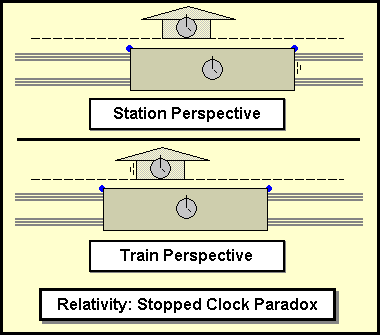
The fact that two of the four photons are inside the walls of the train is irrelevant to their speed. They don’t know where they are such as to travel at different speeds just because someone else is also watching them. Look at where they must meet by the stations perspective measurement. The observer at the station sees the two photons in the train meet toward the end of the car, NOT at the centered clock.
You cannot say that those two photons for some magic reason travel at different speeds than the other two. That would be “dishonest”. Thus you must conclude that (actually by definition of relative locations) they meet toward the end of the car.
Now what part of that have your eyes not seen?
Back to top Go down
View user profile Send private message Send e-mail
Pezer
builder
builder
avatar
Posts : 2190
Join date : 2011-11-15
Location : deep caverns in caves
PostSubject: Re: Rational Metaphysics Thu Oct 03, 2013 5:22 pm Reply with quote Edit/Delete this post Delete this post View IP address of poster
For fuck’s sake, fine, here’s some Shiva work:
The reason your stupid fucking clock example doesn’t work is that the diagram is in xy dimensions when trains happen to travel, relative to train stations, in xyz dimensions (that we can even fucking notice on our mammalian scale).
Tell me James S Saint, according to your work of mathematical holyness, why do balls get smaller as you throw them away from you?
Back to top Go down
View user profile Send private message Send e-mail
Fixed Cross
Tower
Tower
avatar
Posts : 6274
Join date : 2011-11-09
Location : the black ships
PostSubject: Re: Rational Metaphysics Fri Oct 04, 2013 1:41 am Reply with quote Edit/Delete this post Delete this post View IP address of poster
Wow, my optimism is fucking ridiculous and I have no respect for boundaries. I don’t apologize.
Pezer wrote:
why do balls get smaller as you throw them away from you?
Yeah, that is what I wanted to say as well. Perspective is the “deformation of true vision”, and as difference in terms of distance and angle skew the appearance of an object, apparently, difference in gravity and velocity skew it in other dimensions. That is what concerns Special Relativity. General Relativity talks not just about a perspective “misrepresenting truth”, but about actual changes.
(Actual changes due to acceleration, which is increased affeftance-momentum, thus simply “increased being”. An accelerating object “is to a greater degree”)
" The strong do what they can do and the weak accept what they have to accept. "
- Thucydides
Back to top Go down
View user profile Send private message Send e-mail Online
Fixed Cross
Tower
Tower
avatar
Posts : 6274
Join date : 2011-11-09
Location : the black ships
PostSubject: Re: Rational Metaphysics Fri Oct 04, 2013 3:05 am Reply with quote Edit/Delete this post Delete this post View IP address of poster
It seems to me that the constancy of the speed of light, which appears to be an ontological constant, thus influencing the validity of any logic based on it (you could say that “c = constant in all reference frames” even trumps “existence=affectance”), makes the type of “completeness” you have in mind impossible, illogical even. Reality doesn’t fit in that frame.
Can you even observe that photon in its path? How would that work? With the aid of more photons? It’s practically going to be very difficult, I’d think.
" The strong do what they can do and the weak accept what they have to accept. "
- Thucydides
Back to top Go down
View user profile Send private message Send e-mail Online
James S Saint
rational metaphysicist
rational metaphysicist
Posts : 244
Join date : 2011-12-26
PostSubject: Re: Rational Metaphysics Fri Oct 04, 2013 4:21 am Reply with quote Edit/Delete this post Delete this post View IP address of poster
Over 100 years ago, Science noted that things get smaller as they approach a strong gravity well, such as a black hole. And the gravity relating to particles and such black holes is formed by such compression of hyper activity as each instance delays the progress of each other.
So the more interesting question is why it is that your balls gets smaller when you get closer to the chaos of the contest and the true gravity of the situation.
Fixed Cross wrote:
It seems to me that the constancy of the speed of light, which appears to be an ontological constant, thus influencing the validity of any logic based on it (you could say that “c = constant in all reference frames” even trumps “existence=affectance”), makes the type of “completeness” you have in mind impossible, illogical even. Reality doesn’t fit in that frame.
Can you even observe that photon in its path? How would that work? With the aid of more photons? It’s practically going to be very difficult, I’d think.
You seem to be slipping back into the mindset that forbids the fallibility of perception. There are two things being called “constancy of the speed of light”. First light logically must always have the exact same speed “in a vacuum” (assuming an imaginary absolute vacuum). But in any real space, the speed of light varies with the affectance field density (gravity and EM).
The other constancy of the speed of light is the theory that the speed of light will be seen as exactly the same by all observers. That was in fact a desperate reach for something absolute to hang the new god of physic’s hat upon. The problem is that perception is in the way of every observation. And perception is very fallible. That is why cognition forms in the mind, so as to correct for perception errors (and why you have two eyes, two ears, and two brains).
The truth of it is that the perception of light being constant is a slight error. It, like so many desperate attempts to grasp the perfect theory, is only “almost true”, just as was the flat Earth theory. Theories that require the abandonment of logic for sake of the absoluteness of perception theories is what brings the diversity of religions and their egocentric warring and insistence on dominating all else.
Truth is always beyond perception.
And perception can never “trump” ontological definition, fore perception entirely depends upon it. Without affect, what do you image would be perceived?
And we always detect photons by their interaction with some form of a “detector” (which is what defines their “location”), such as your eyes - merely another detector). Imagine placing photon detectors in a grid all around the station. Do you seriously believe that they would show the two photons above (perhaps a flatbed) train car coming together where the train clock is “going to be” rather than directly in front of the station clock? How would they know where the train clock is “going to be”? What if there was no train clock? Do photons behave differently if someone is watching?
The theory of relativity yields the requirement that the dark side of the Moon only exists when “we” can observe it. It is a broken ontology. And that little anime shows why. The cause of the break is that it was merely desperately presumed that all observers would always perceive the speed of light as a constant, so as to claim an absolute truth upon which to base the new “god of Man” ontology called “Secular Science”.
RM:AO forbids presumption and as far as I can tell from viewing the considerable list of Man’s prior ontologies, it is the only one that truly holds to;
- Consistency
- Comprehensiveness
- Relevance
“Truth” cannot be known without ALL three of those. Mere perception doesn’t cut it and can only claim one of the three. Relativity is the effort to make a God out of perception. It is a false god, perhaps the original false god from which Man has been misled throughout his entire history.
Back to top Go down
View user profile Send private message Send e-mail
Pezer
builder
builder
avatar
Posts : 2190
Join date : 2011-11-15
Location : deep caverns in caves
PostSubject: Re: Rational Metaphysics Fri Oct 04, 2013 5:40 am Reply with quote Edit/Delete this post Delete this post View IP address of poster
There is no light in a vacuum, or any vacuum, for light is the affect of matter and energy.
Your clevernesses (or not so clever… Do you think nobody saw the connection between ball and balls before you so grotesquely dove for it?) answer nothing.
xy and xyz James.
“The theory of relativity yields the requirement that the dark side of the Moon only exists when “we” can observe it. It is a broken ontology.”
All three of us talking with you have established, in separate ways, this to be simply a sophist missunderstanding of relativity. Can you deal with that? Can you even take your imagination from a diagram to what a train moving past a station would actually feel and look like from inside the train, or from a train station looking at it?
By GOD have you trapped yourself in your own two dimensional models?!?!?!?
Back to top Go down
View user profile Send private message Send e-mail
Fixed Cross
Tower
Tower
avatar
Posts : 6274
Join date : 2011-11-09
Location : the black ships
PostSubject: Re: Rational Metaphysics Fri Oct 04, 2013 8:18 am Reply with quote Edit/Delete this post Delete this post View IP address of poster
James S Saint wrote:
You seem to be slipping back into the mindset that forbids the fallibility of perception. There are two things being called “constancy of the speed of light”. First light logically must always have the exact same speed “in a vacuum” (assuming an imaginary absolute vacuum). But in any real space, the speed of light varies with the affectance field density (gravity and EM).
Yet wherever, it will always be the absolute maximum, right? “speed” is relative in itself. “meter” and “second” alter in different EM/Gravity densities.
Quote :
The other constancy of the speed of light is the theory that the speed of light will be seen as exactly the same by all observers. That was in fact a desperate reach for something absolute to hang the new god of physic’s hat upon. The problem is that perception is in the way of every observation. And perception is very fallible. That is why cognition forms in the mind, so as to correct for perception errors (and why you have two eyes, two ears, and two brains).
And in my understanding the Lorenz transforms are exactly that - an extension of cognition - an extra faculty of correction of perception, to compensate for our minds not having evolved to interpret correctly at relativity-level speeds and densities.
Quote :
The truth of it is that the perception of light being constant is a slight error. It, like so many desperate attempts to grasp the perfect theory, is only “almost true”, just as was the flat Earth theory. Theories that require the abandonment of logic for sake of the absoluteness of perception theories is what brings the diversity of religions and their egocentric warring and insistence on dominating all else.
Truth is always beyond perception.
We all agree there. This has been the central tenet of philosophy since time immemorial.
Quote :
And perception can never “trump” ontological definition, fore perception entirely depends upon it. Without affect, what do you image would be perceived?
I did not mean the perception of the speed of light.
Only if you define light as affect does affect trump light. But I’ve always had a slight problem with this, as I suspect that light can exist without affecting anything (except itself).
It is this, unaffecting i.e. “boundless” light, what the ancients referred to as the truly pure God.
Affect came into being, according to them, when the boundless got entangled in itself, and created a center of affect. (the first cause, from which the division of force and form, and consequently, manifestation follows).
Quote :
And we always detect photons by their interaction with some form of a “detector” (which is what defines their “location”), such as your eyes - merely another detector). Imagine placing photon detectors in a grid all around the station. Do you seriously believe that they would show the two photons above (perhaps a flatbed) train car coming together where the train clock is “going to be” rather than directly in front of the station clock? How would they know where the train clock is “going to be”? What if there was no train clock? Do photons behave differently if someone is watching?
What I’m asking is how do you detect a photon while it is in motion.
My eyes detect a photon as the photon hits my eyes and thus ceases to travel at c.
Quote :
The theory of relativity yields the requirement that the dark side of the Moon only exists when “we” can observe it. It is a broken ontology. And that little anime shows why. The cause of the break is that it was merely desperately presumed that all observers would always perceive the speed of light as a constant, so as to claim an absolute truth upon which to base the new “god of Man” ontology called “Secular Science”.
I find it hard to believe that you really think this. It says that we can only measure it precisely when know our motion and gravitational state in respect to it as well.
Quote :
RM:AO forbids presumption and as far as I can tell from viewing the considerable list of Man’s prior ontologies, it is the only one that truly holds to;
- Consistency
- Comprehensiveness
- Relevance
“Truth” cannot be known without ALL three of those. Mere perception doesn’t cut it and can only claim one of the three. Relativity is the effort to make a God out of perception. It is a false god, perhaps the original false god from which Man has been misled throughout his entire history.
It seems to me that RM does not tolerate that it is itself a perspective.
Yet if it weren’t, we wouldn’t find ourselves in this situation.
" The strong do what they can do and the weak accept what they have to accept. "
- Thucydides
Back to top Go down
View user profile Send private message Send e-mail Online
Capable
Tower
Tower
avatar
Posts : 5191
Join date : 2011-11-03
Location : calmly outside of time
PostSubject: Re: Rational Metaphysics Fri Oct 04, 2013 9:35 am Reply with quote Edit/Delete this post Delete this post View IP address of poster
James, I understand your view on the situation of the clocks. You do not need to keep reiterating the same situation repeatedly, that must be tedious for you (and for us). Let me demonstrate my knowledge of your view: In your view the clocks cannot be said to shut off because each clock is moving out of center-position between the photons, and this is occurring between the moment the photons start and the moment they reach the center. Therefore the clocks cannot be said to shut off. But of course they CAN be said to shut off from their own perspective, as obviously the clocks are stationary with respect to themselves. Therefore, since Relativity posits that movement is relative, Relativity cannot explain if the clocks shut off as it produces the seeming contradiction that the clocks both shut off and do not shut off.
So lets look at this like philosophers, because this perspective of science without philosophy is creating confusion.
We know the clocks stop because the clock is stationary (with respect to itself), and two photons traveling the same speed move toward the stationary clock from equidistant locations. If you actually performed this scenario, the clocks shut off. The “problem” comes in because another, non-clock perspective is moving (relative to the clock) and thus observes the clock moving out of the center location between the photons.
In order to calculate what an observer at another moving reference frame sees, we could do Lorentz calculations. But the question is not what an observer on another moving reference frame SEES, but what actually HAPPENS. We know with certainty that the clocks shut off, because relative to the clocks each themselves they are exactly in the center of the photons. Adding another moving perspective that has no actual causal influence into the photons or clocks (and remember, a frame with constant velocity is the same as being stationary, with respect to whatever is going on in it) can in no way alter what is happening to the clocks.
So the real question is: how to account for the fact that the additional moving frame observes the context-independent photons NOT meeting at the clock yet the clock, as we’ve already established, actually does shut off? This can be explained by thinking about what velocity means. Velocity is change in distance over change in time, as I’m sure you know. V=d/t. You absolutely cannot speak about velocity without speaking both about time and distance quantities.
So when we say that light travels at a constant velocity what we are saying is that a certain distance is being covered in a particular quantity of time. Now think about the clocks situation: we already KNOW that the clocks shut off because they are stationary in the center where the photons meet. So how does another moving perspective measure the light? This is key: it measures the exact same value of velocity but with slightly varied distance and time units. From a perspective from which the other clock is moving out of center, because that other frame is actually MOVING along with the light, the light is not covering the same amount of distance, it is covering either more or less.
Think about it as the reality itself is shifting slightly with respect to the photons, from the perspective of an additional third-party frame of reference. Because of this and because c is constant, a different amount of distance is being covered by the light, from the perspective of the third-party. This is how time dilation is arrived at, because V is concerned for c therefore if you alter d you must also alter t in an equal amount, so that V does not change. If c is constant in the other frame, and distances are being observed differently with respect to c’s movement them the t value also changes. In plain English this means that the photon is measured to be covering either more distance in more time, or less distance in less time, all so that the total value of V remains unchanged at c. This is how time dilation is arrived at, as a relative change in the time-experiences (units of measurements of changes) between two perspectives moving at different velocities.
The other-frame observer will measure the light at c from his own perspective, but also see the light covering either more or less distance in the other moving frame, because it is moving relative to the observer (but not relative to the light itself). Relative to light, all frames move at an equal velocity of c.
How to calculate the discrepancy of light at c covering more distance or time relative to another moving frame from which these distances and times ae slightly skewed? Einstein’s equations give the means to do this. The observed discrepancy in c as d/t in a moving, skewed other frame is a matter of measurement, but the fact remains that from every frame perspective the clocks do I’m fact shut off, even if relative to another non-clock moving frame this is not able to be accounted for with simple measurement.
“What are you?” asked Apollonius.
“We are gods,” said Icarus.
“Why are you gods?”
“We are gods because we are good men.”
Back to top Go down
View user profile Send private message Send e-mail
